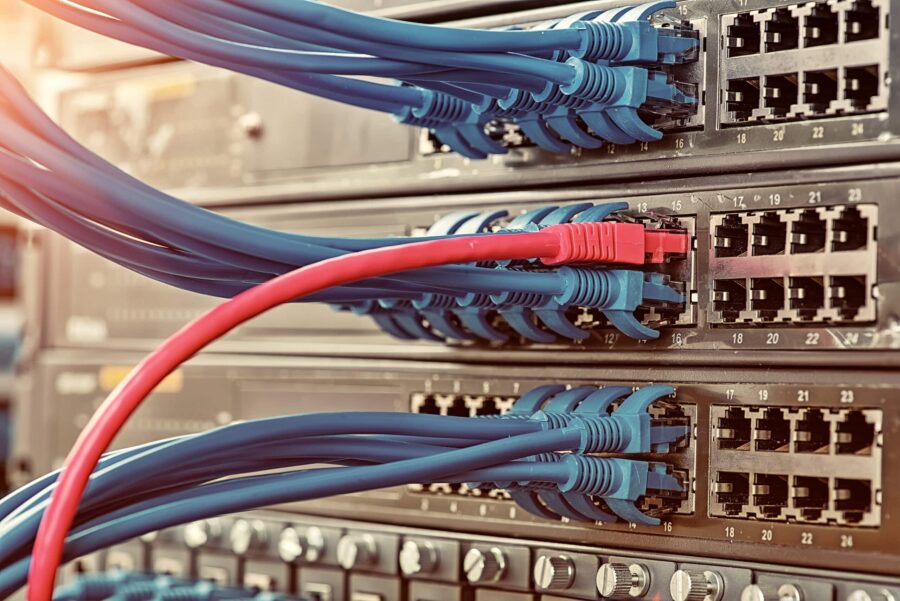Blog

The Importance of Physical Security in IT: Guarding the Digital Fortress
In the ever-evolving landscape of information technology (IT), where we increasingly rely on interconnected systems and the digital realm, it’s easy to overlook the significance of physical security. While cybersecurity measures often dominate discussions in the IT world, physical security remains the unsung hero that safeguards our digital assets and infrastructure. In this blog post, we will explore the crucial importance of physical security in IT and why it should never be underestimated.
Defining Physical Security in IT
Physical security in IT encompasses the measures and protocols put in place to protect an organization’s physical assets, data centers, servers, and other tangible resources. It acts as the first line of defense against unauthorized access, theft, vandalism, and various physical threats that can compromise the confidentiality, integrity, and availability of critical IT resources.
Key Aspects of Physical Security in IT
Data Center Protection
Data centers are the heart of IT infrastructure, housing servers, storage devices, and network equipment. Maintaining strict access controls, surveillance, and environmental monitoring is essential to prevent unauthorized access, physical damage, and environmental disasters.
Access Control Systems
Implementing robust access control measures, such as biometric authentication, key card systems, and secure locks, ensures that only authorized personnel can enter sensitive areas.
Surveillance and Monitoring
Security cameras, motion sensors, and alarms play a pivotal role in detecting and deterring intruders. Real-time monitoring helps security personnel respond promptly to any potential threats.
Perimeter Security
Fencing, gates, and barriers can establish a clear boundary, while guards or security patrols can further enhance the protection of IT facilities.
Redundancy and Resilience
Physical security measures should be redundant and resilient to minimize vulnerabilities. This includes backup power supplies, fire suppression systems, and disaster recovery plans.
The Importance of Physical Security in IT
Protection Against Theft and Vandalism
Physical security measures deter unauthorized individuals from attempting theft, vandalism, or sabotage. This protection extends to expensive equipment, sensitive data, and even intellectual property.
Confidentiality and Data Integrity
Unauthorized physical access can compromise the confidentiality and integrity of data stored in servers and other hardware. A breach can result in data leaks or tampering.
Business Continuity
Physical security helps maintain business continuity by safeguarding critical IT infrastructure. This ensures that operations can continue even in the face of physical threats or disasters.
Compliance and Legal Requirements
Many industries have specific regulatory requirements related to physical security, such as HIPAA in healthcare or PCI DSS in payment card processing. Non-compliance can lead to severe penalties.
Reputation and Trust
A security breach, whether physical or digital, can tarnish an organization’s reputation and erode the trust of customers and stakeholders. Strong physical security measures demonstrate a commitment to safeguarding sensitive information.
Cost Savings
Investing in robust physical security can lead to cost savings in the long run. Preventing physical breaches reduces the need for costly incident response and recovery efforts.
In the digital age, where our reliance on IT systems and data is greater than ever, physical security should never be an afterthought. It serves as the vital foundation upon which the fortress of digital security is built. Neglecting physical security can have severe consequences, including data breaches, financial losses, and reputational damage.
Reach out to Beringer today!
Organizations must recognize the paramount importance of physical security in IT and invest in comprehensive measures to protect their valuable assets. By doing so, they can fortify their defenses and ensure the continued success, trust, and reliability of their IT infrastructure in an increasingly interconnected world.
IT Managed Services and Cybersecurity are a few key areas for our team here at Beringer. Give us a call if your organization has concerns about the security of physical or digital networks. Our team is ready to help!
Beringer Technology Group, a leading Microsoft Partner specializing in Microsoft Dynamics 365 and CRM for Distribution also provides expert Managed IT Services, Backup and Disaster Recovery, Cloud Based Computing, Email Security Implementation and Training, Unified Communication Solutions, and Cybersecurity Risk Assessment.




